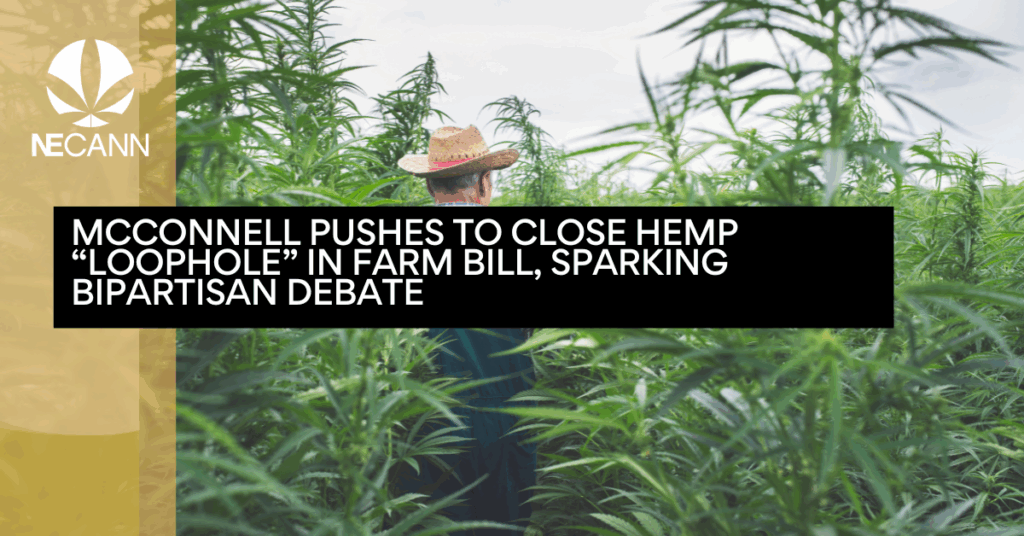Sen. Mitch McConnell (R-KY), a key architect of the 2018 Farm Bill that legalized industrial hemp, is now leading a push to revise that same legislation to ban the sale of intoxicating hemp-derived products. The move, advanced through the Senate Appropriations Committee last week, could drastically reshape the future of hemp operators nationwide.
The proposed changes are part of a broader agricultural spending bill and mirror a similar effort in the House. The Senate version includes a one-year grace period allowing current operators time to seek regulatory approval or pivot their business models before the restrictions take full effect.
McConnell, who was instrumental in the 2018 legalization of hemp, said the revision “takes us back to the original intent of the 2018 Farm Bill” by blocking the unregulated sale of “lab-made, hemp-derived substances” that carry intoxicating effects but are sold legally due to a loophole in federal law.
“This closes the loophole and ensures that these products aren’t being sold without any safety framework,” McConnell said, referencing the surge of products like Delta-8 THC and other psychoactive cannabinoids synthesized from legal hemp.
A Divided Senate Response
While the proposal enjoys support from lawmakers concerned about public safety and regulation, it has triggered significant pushback from hemp industry advocates and other lawmakers across the aisle.
Sen. Jeff Merkley (D-OR), a longtime hemp supporter, said he was relieved that the Senate bill includes a delay in enforcement. However, he cautioned that the broader implications could be devastating, especially for businesses producing non-intoxicating hemp-derived products like CBD.
“There are other products that come from hemp, such as CBD, that have, in fact, been a significant factor as a health care supplement in many, many products across America that do not have a hallucinogenic effect,” Merkley said.
He emphasized that a one-size-fits-all ban could stifle innovation and harm legitimate businesses that operate responsibly under current rules.
Kentucky Senators at Odds
Interestingly, McConnell’s push for stricter hemp regulations is not unanimously supported within his own state. Kentucky’s other Republican Senator, Rand Paul, has strongly opposed the effort, warning it would “completely destroy the American hemp industry.”
Paul has previously introduced legislation aimed at expanding the hemp market and ensuring broader access for both farmers and manufacturers. His stance reflects a more libertarian view on hemp regulation and the potential economic damage a crackdown could cause.
“The idea that we should ban entire categories of hemp products because a few bad actors aren’t following the rules is a complete overreach,” Paul said. “This isn’t what we promised farmers and small businesses when we passed the 2018 Farm Bill.”
Industry in Limbo
Since the 2018 Farm Bill’s passage, the hemp market has exploded, especially with products containing Delta-8, Delta-10, and other synthetically derived cannabinoids. These compounds, while technically legal under current federal definitions of hemp, have raised safety concerns due to a lack of regulation and quality control.
As the Senate and House prepare to reconcile their versions of the agricultural spending bill, the future of thousands of hemp businesses hangs in the balance. While some see the effort as a necessary course correction, others fear it may do more harm than good.
For now, the one-year grace period in the Senate version offers a temporary reprieve. But unless significant amendments are made, the proposed changes could mark a turning point for the American hemp industry — and its political champions.



